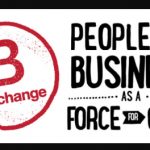When Social Impact Businesses Expatriate . . .
Social impact businesses are similar to their traditional business counterparts in many legal and tax respects. However, in advising social entrepreneurs and investors, we occasionally encounter differences that require departing from a traditional approach. My colleague previously noted that entrepreneurs shouldn’t use a US entity to operate a non-US business before considering the legal and tax consequences. Here, I try to describe one major aspect of the US tax rules that can negatively affect cross-border businesses (including many social impact businesses) that is often not considered by founders, investors, and advisors experienced primarily with purely domestic businesses: the corporate anti-expatriation rules (referred to here as “Section 7874”).
Congress enacted Section 7874 in response to a wave of corporate expatriations by US-based, multinational, publicly traded companies. Unfortunately, however, Section 7874 (and the corresponding IRS regulations) could best be described as the proverbial sledgehammer used in lieu of scalpel, particularly as applied to small, start-up stage, impact-driven businesses.
When Section 7874 applies . . .
Section 7874 applies to expatriating businesses, or those that move their legal headquarters from the US to another jurisdiction. Specifically, Section 7874 is triggered when all of the following occur:
- A foreign business entity acquires a US business entity (or its assets);
- Following this acquisition, the foreign entity is owned at least 60% (or 80%, as described below) by former owners of the US entity; and
- The combined foreign and US entities lack a “substantial trade or business” in the country of expatriation.
What Section 7874 does . . .
When triggered, Section 7874 can impose a one-time “exit tax” on the business based on its fair market value, and for which certain credits (such as prior net-operating losses) are unavailable to offset the tax. However, Section 7874 will instead completely disregard the expatriation and allow the IRS to continue treating the (now foreign-based) business as a US entity if the 80% threshold described above is reached.
By contrast, the costs of retaining a US-parent structure for a non-US business can be exorbitant. Many start-ups operating outside the US eventually court non-US buyers, who typically eschew purchasing US corporate stock, and instead insisting on an asset sale structure, which can more-than-double the tax on the selling owners. Additionally, a US-parented non-US business may scare away some foreign investors unwilling to tolerate particularly complicated American banking and tax compliance rules.
How small businesses previously dealt with Section 7874 . . .
Small businesses, particularly start-ups, often change their legal headquarters for non-tax reasons, including to reflect changes in customer location or accommodate new investors. Additionally, founders often hastily form a US entity before undertaking a thoughtful (often expensive) analysis of ideal legal structure. Sometimes well-meaning advisors rush entrepreneurs into a US corporate structure, advising this as a conservative step to protect company IP or limit liability. Many entrepreneurs may even anticipate a future company relocation, unaware of Section 7874.
However, US start-ups attempting to relocate are subject to the full effect of Section 7874, no differently from the originally targeted, publicly traded companies. (Perhaps more accurately, US start-ups may be even more affected by Section 7874, as large multinationals’ size and acquisition desirability afford certain work-arounds to the anti-expatriation rules.)
In prior years, some US start-ups looking to expatriate for non-tax reasons have managed to avoid Section 7874 by failing the 60% ownership test (e.g., by lumping a critical mass of new owners around an equity investment related to the relocation) or by satisfying the requirement of a “substantial trade or business” in the desired country of organization. However, the IRS has substantially altered the Section 7874 rules over time, resulting in much less planning opportunity, particularly for start-ups and social impact businesses.
Modification of the 60/80% ownership tests . . .
Section 7874 establishes the 60 and 80% thresholds mentioned above, but gives the IRS wide discretion to flesh out those tests in order to prevent abuse. As mentioned above, some start-ups previously avoided Section 7874 by admitting enough new equity investors in a financing transaction related to the relocation, and in some cases, lumping other new owners (e.g., recent hires or noteholders exchanging notes for equity) at the same time to reach the desired 40% new ownership (or 20%, if structuring to avoid only the harshest aspects of Section 7874).
Arguably, these practices were abusive and gave rise to legitimate IRS concern. On the other hand, some believe that these “workarounds” did not offend the “spirit” of Section 7874, which originally targeting large, publicly traded companies, which would have had a very difficult time selling such a high amount of new equity.
Furthermore, Congress specifically addressed sales of new equity by including an “anti-stuffing rule” in Section 7874. This rule disregards equity of the foreign acquiring entity from the computation where that equity was issued in a public offering related to the expatriation. Nevertheless, the IRS finalized regulatory guidance earlier this year that, in its own words: “modifies the scope” of the “anti-stuffing rule.” Under that guidance, relocating businesses must now disregard broad categories of equity issued by the foreign acquiring business, including equity issued for cash (whether in a public or private offering) and equity issued upon the exchange of company notes – quite a “modification.”
With these new rules, US start-ups are now generally unable to “fail” the 60/80% ownership tests (though this approach remains available for large, established, companies that can court a foreign “merger partner.”)
Constriction of the “substantial trade or business”
US companies have another means of potentially avoiding Section 7874, where the combined entity resulting from the foreign acquiring entity’s acquisition of the US entity (or its assets) has a “substantial trade or business” in the country of relocation. Initially, the IRS tested for a “substantial trade or business” in the new jurisdiction by considering all facts and circumstances – a difficult and subjective determination. However, the original rules included a safe harbor for those post-acquisition enterprises with at least 10% of their assets, employees, and sales in the chosen jurisdiction.
US start-ups could sometimes qualify for the initial safe harbor, but often two complications would arise: (1) businesses with global sales footprints (e.g., software businesses) often lacked at least 10% sales in any single jurisdiction, and (2) many social impact businesses operate in countries that make chartering a business entity very difficult, particularly where foreign owned. Many social entrepreneurs address the second concern by operating through a subsidiary or a branch of a corporation organized outside the operational jurisdiction, precluding availability of the safe harbor. Given these limitations, relocating US start-ups would frequently forego the 10% safe harbor and seek comfort under the general “all facts and circumstances” analysis.
However, the IRS later increased the safe harbor percentages to 25%, greatly limiting its availability (again, particularly for organizations with multi-jurisdictional sales). Not satisfied, the IRS then changed the 25% safe harbor thresholds to a set of minimum requirements. Currently, a US business seeking relocation must have at least 25% of the enterprise assets, employees, and sales located within the single jurisdiction where it is seeking to relocate. (Note that these rules do not consider the business principals’ tax motivations nor the actual tax rates of the chosen jurisdictions, and so effectively limit relocations to even high-tax, Scandinavian countries…)
The current situation . . .
Congress and the IRS are considering further changes to Section 7874, as they believe many large US businesses – the original targets – continue to pursue tax-motivated expatriations. However, we believe most of the previously available avenues for small, start-up US businesses considering relocation have effectively been closed. In certain limited circumstances, US start-ups may still expatriate under the “substantial trade or business” exception. However, this approach now requires a substantial amount of uncertainty, higher deal-structuring costs, and often some changes to the otherwise preferred deal structure, in order to obtain comfort on the desired tax outcome.
In some other limited circumstances, a US start-up may be able to establish a framework for future migration by either forming or converting into a limited liability company at a sufficiently early stage. However, even this approach requires careful planning and consideration of the applicable facts and circumstances.
In the end, we advise many social impact businesses with non-US operations to avoid creating a US entity entirely, or at least until advised of the full-lifecycle effects of that decision. So ultimately, Congress’s original intent of keeping large publicly traded corporations in the US may have the effect of pushing small, start-up companies out.





